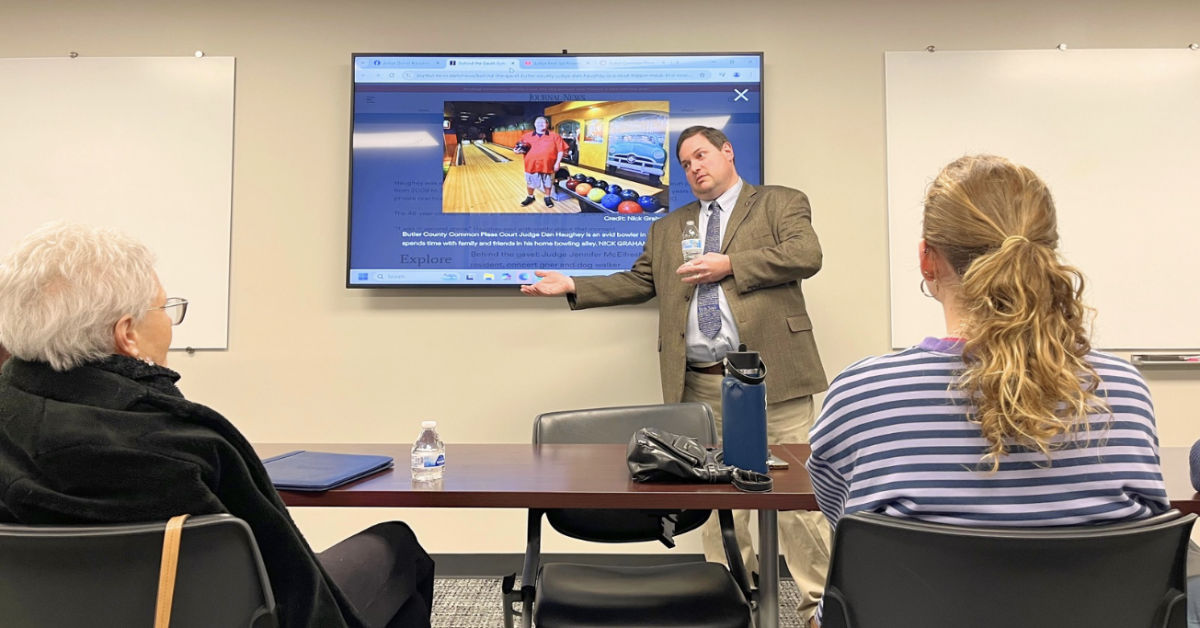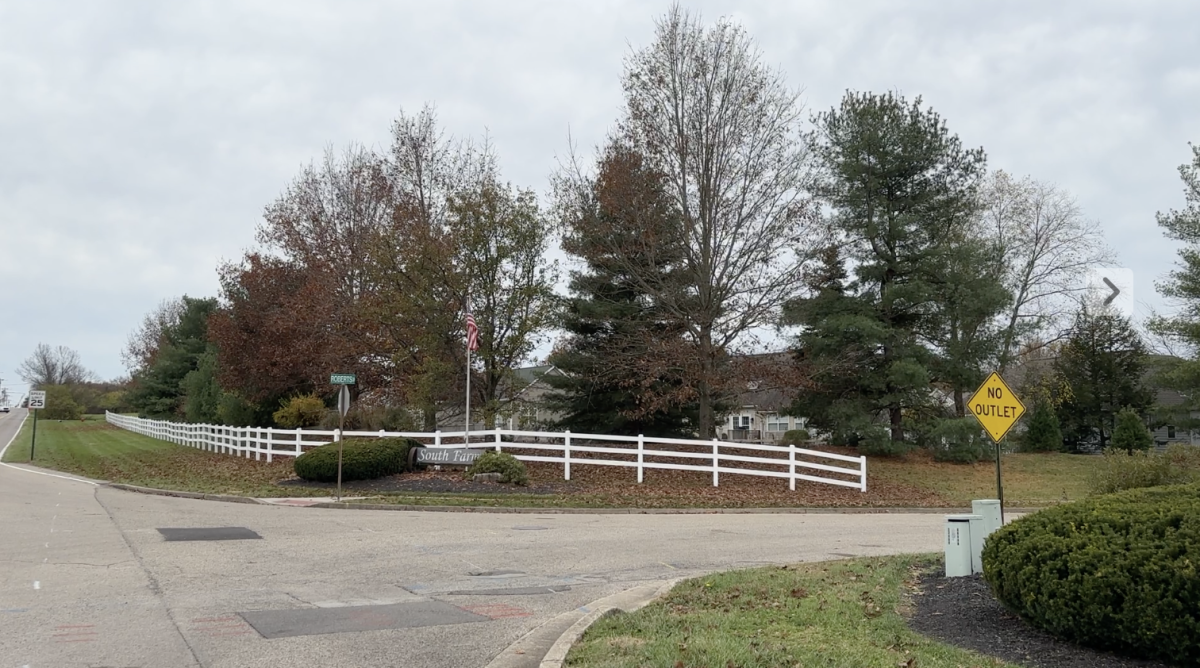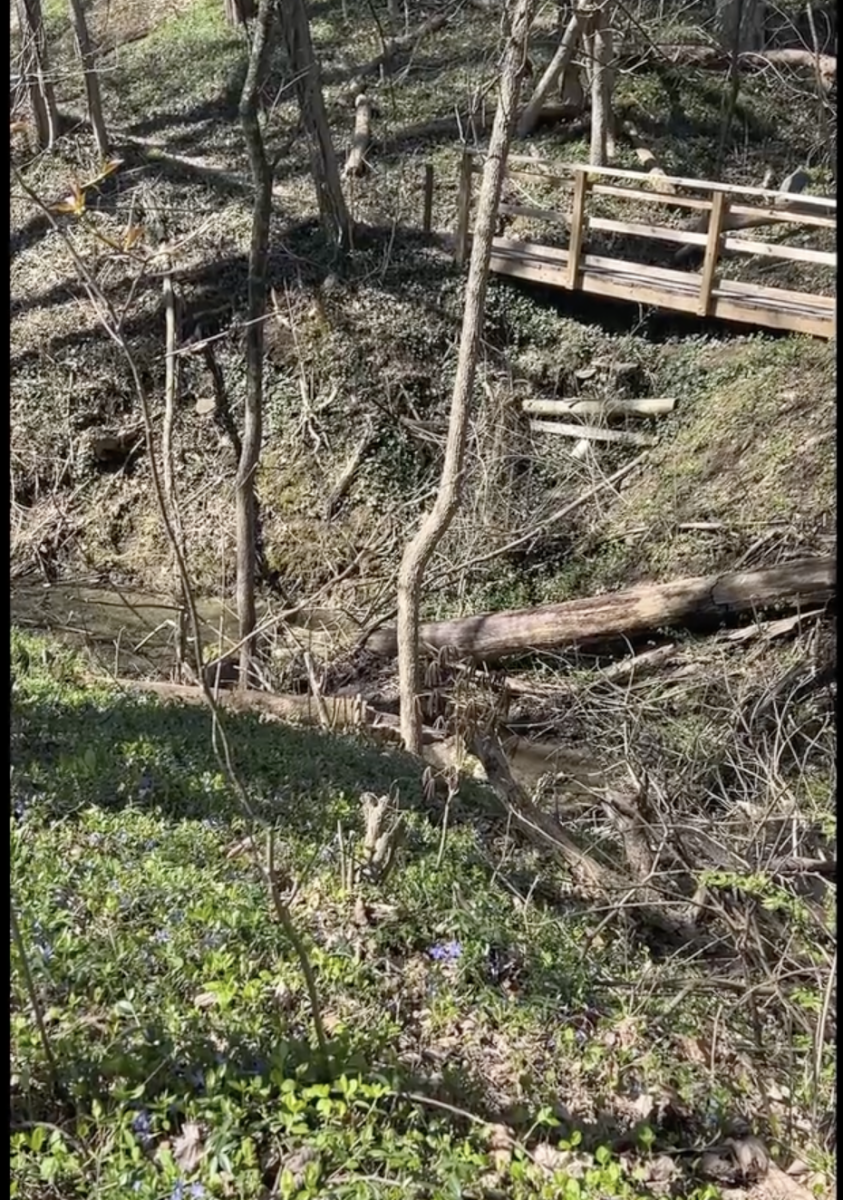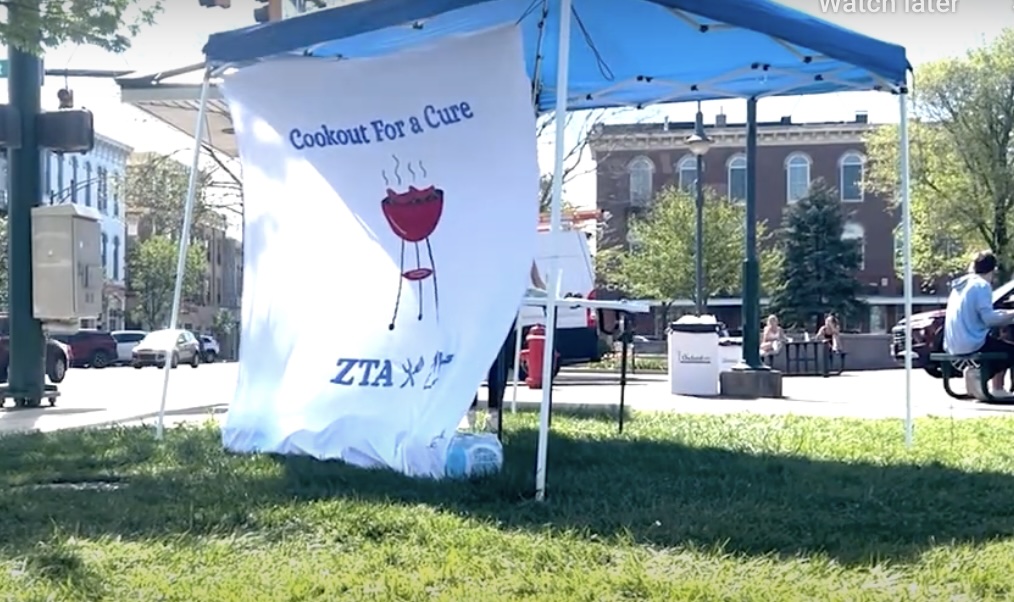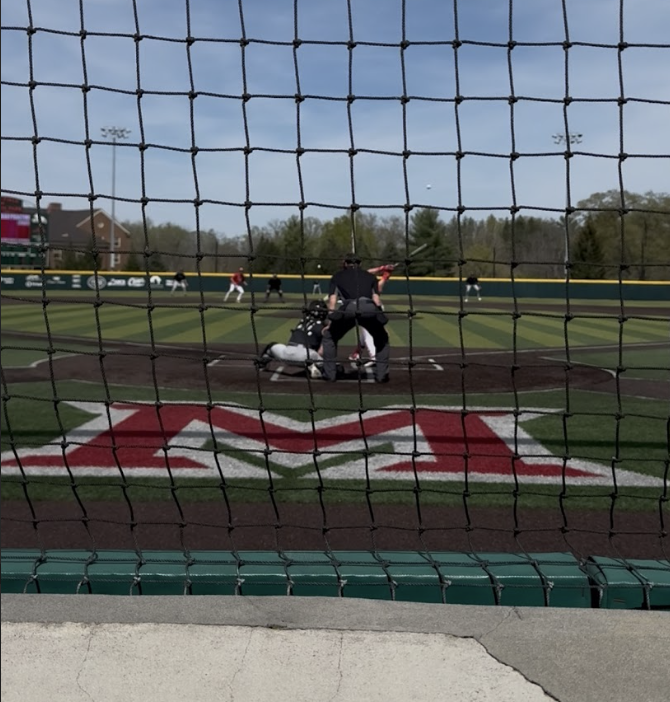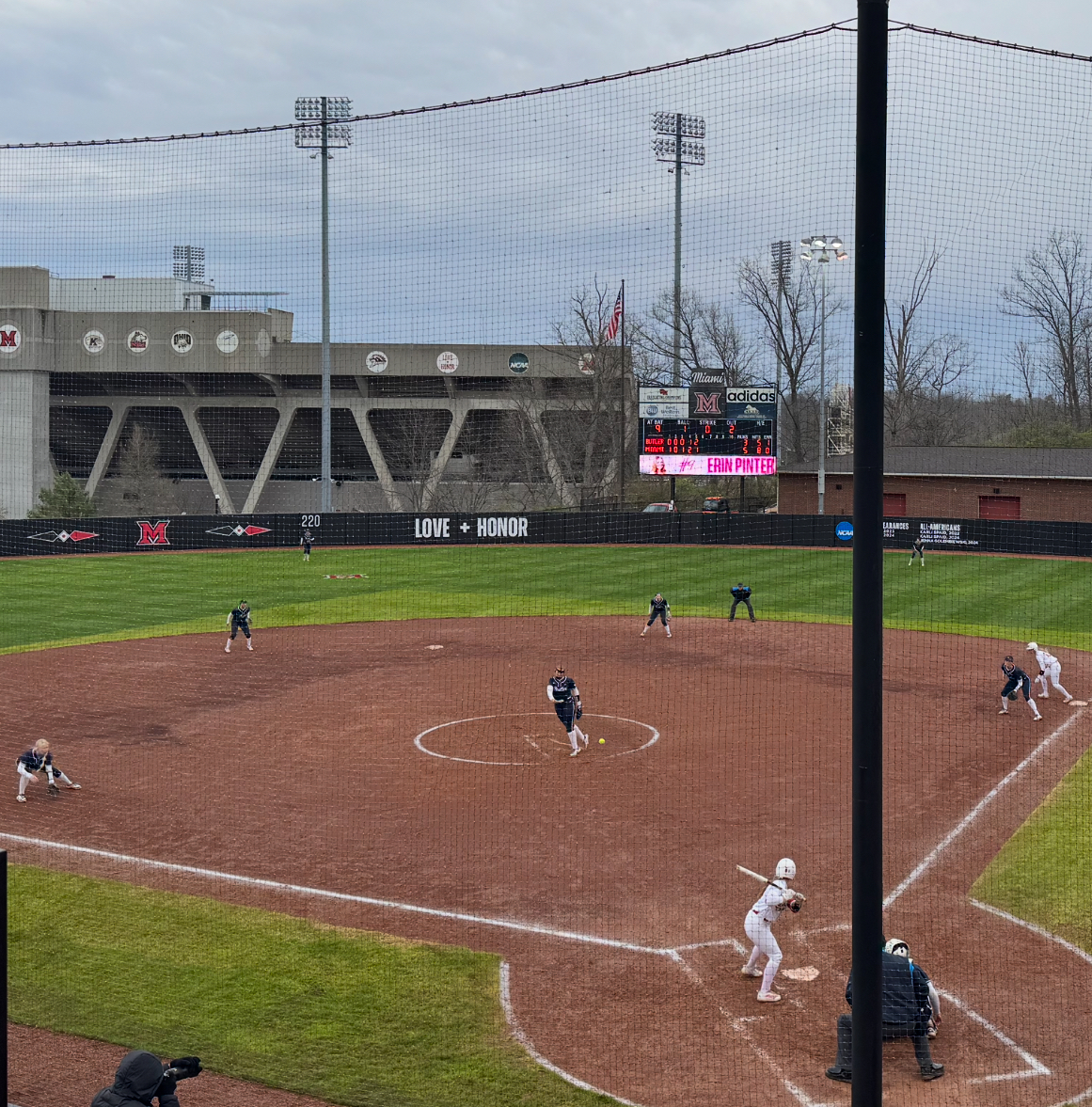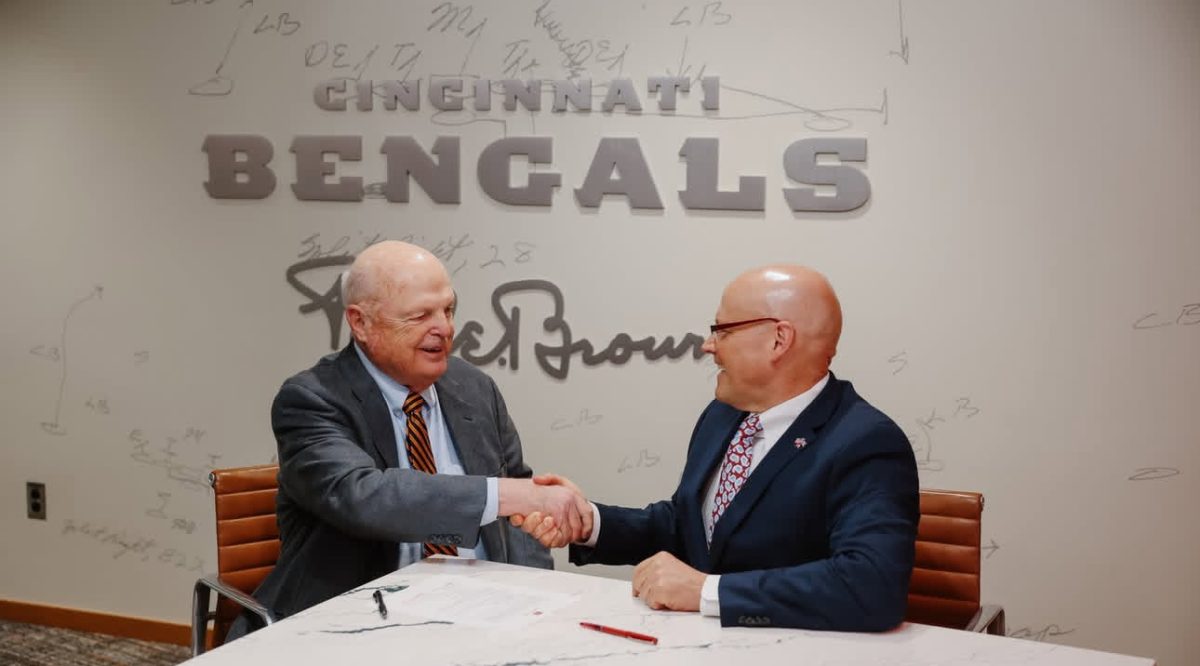Forty-nine years after the first Earth Day, the idea of sustainability in Oxford has evolved from the pollution and overpopulation concerns of Miami ecology students to the collaboration of city and university organizations to promote clean energy, environmental health, transportation, ride-sharing, and other green issues.
Earth Day was first celebrated in 1970 after Sen. Gaylord Nelson, a Democrat from Wisconsin, had an idea for a national day focused on the environment in response to an oil spill in California the previous year.
The goal of the first Earth Day was to gain national attention and encourage politicians to make environmental issues high priorities. Later that year, the Environmental Protection Agency was created by then President Richard Nixon to conduct federal environmental research that would assist in setting and enforcing standards.
Two years later, Ohio created the state’s Environmental Protection Agency to protect public health by ensuring compliance with state environmental laws. Today, all 50 states have environmental protection agencies.
Oxford’s Efforts at Sustainability
According to Oxford’s Comprehensive Plan, adopted in 2008, “the importance of sustainability was strongly stated by many residents, stakeholders, and city leaders” during public meetings about what the plan should cover.
In a survey about land usage, participants were asked to rank land-use principles on a score out of five. “Environmentally sensitive and sustainable practices will be encouraged in future developments” was ranked the highest out of ten other options including principles such as developing an “attractive public realm” and preserving “the community’s small town character.”
To accommodate this green interest, one land-use objective in the plan is to “be a leader in environmental stewardship.” Throughout the comprehensive plan, similar objectives highlight an intent to consider sustainable practices in development-related decisions.
More than 10 years later, City Council has grown from talking of environmental issues as considerations to making sustainability Oxford’s top strategic priority for 2019.
City Council is actively demonstrating its commitment through its recent pilot Food Scrap Drop-off composting program that began on April 6. Through this new program, residents can compost their food waste rather than throw it in the garbage.
Council member, Chantel Raghu, said the city’s Environmental Commission is working on more sustainable initiatives like a Tree Preservation and Protection ordinance and is organizing a Climate Change Task Force.
Connections with Campus
The first Earth Day celebration caught the attention of Miami University students in 1970.
The Miami Student ran a story in the April 24, 1970 edition about an ecology panel presented at Shideler Hall as part of the “Ecology Teach-In.”
Miami-Middletown Campus’ KAOS newspaper ran an article on April 15, 1970, that featured a special “Environment” section. It also described a two-day environment-related event that highlighted “the problems created by the destruction of our ecological balance and what is being done to correct the pollution of our natural resources.”
Robert Carroll, specialist in Sociology and Human Ecology from the University of Cincinnati, gave a lecture about overpopulation “a condition so pressing that President Nixon . . .proposed a commission be formed to study the problem.”
Today, the Student reports on the numerous green organizations and initiatives on campus.
Twelve Miami green organizations will be coming together at this year’s EarthFest, 9 a.m.-1 p.m., Saturday, April 27, in Uptown Park, to celebrate the earth and educate Oxford about how to live more sustainably.
The event is sponsored by Miami University’s Institute for the Environment and Sustainability, which will celebrate its 50th Anniversary in September.
The institute began as a master’s degree program in 1969, the same academic year as the first Earth Day, but has now expanded with undergraduate and graduate programs, research facilities, and partners with other sustainability-related initiatives on campus.
Max Leveridge, a graduate student and president of Miami’s chapter of the National Association for Environmental Professionals, worked with IES to organize the event. He hopes that the event will allow the community to celebrate the earth and sustainable efforts in the Miami and Oxford communities.
Leading up to the event on Saturday, Miami has been commemorating its first “Earth Week.”
Molly O’Donnell, Associated Student Government secretary for infrastructure and sustainability, organized the events for the week, which include lectures on sustainable fashion and living a zero-waste lifestyle and a community clean-up event on Sunday, April 28.
“My goal as Secretary was to connect Earth Week to EarthFest and to focus on programming and events put on by green student organizations,” said O’Donnell.
Her position is also relatively new, and was added to ASG only three or four years ago so there could be “permanent leadership on issues around sustainability on campus,” she said.
A Sustainable Transportation System
O’Donnell hopes that both Miami and Oxford can continue making efforts towards sustainability.
“The scooters were a step in the right direction, but I think Miami and Oxford could improve on sustainable transportation,” said O’Donnell.
In City Manager Doug Elliott’s weekly report from April 19, he reports that e-scooters have helped reduce car usage in Oxford.
O’Donnell hopes to continue this trend with “zipcars or another car-sharing service to limit the number of students bringing cars to campus,” she said.
Zipcar, a car sharing service, is already available at nine other Ohio universities. The company advertises that its services reduce the need for owning cars, which would help reduce vehicle pollution.
Both Leveridge and O’Donnell feel that the city and university should commit to carbon neutrality.
Leveridge published an opinion piece in the Cincinnati Enquirer that asked Oxford and Miami to commit to cleaner energy.
“Both the city and university need to fully commit to carbon neutrality via established commitments like the Presidents’ Climate Leadership Commitments,” he said.
What it Means to be Carbon Neutral
To become carbon neutral, the city and university must reduce their carbon emissions as much as possible, then offset their emissions with funding for carbon saving elsewhere.
“While both organizations have begun consideration of signing on, Miami and the City of Oxford need to sign on to their respective agreements and commit to carbon neutrality,” O’Donnell said.
She initiated a petition to encourage Miami to sign on to the Presidents’ Climate Leadership Commitment. By signing this agreement, Miami would be committing to neutralizing its greenhouse gas emissions and would set a goal for when it wants to reach carbon neutrality.
So far, more than 400 colleges and universities have signed on to the agreement.
For Oxford, Global Covenant for Mayors is a similar agreement that encourages cities across the world to work towards lower carbon emissions and cleaner energy.
“I believe the necessary collaboration needs to come from both students and community members speaking up if they want a change,” Leveridge said.
One Miami group that gives students a voice on green and sustainable issues is GreenHawks, Miami’s online sustainability news site, which is sponsoring the EarthFest alongside IES.
“It is a fun way to learn more about the Earth and sustainability,” said Editor-in-chief Olivia Bauer.
GreenHawks was created in 2010 “to be the go-to site to find everything the university is doing to be sustainable, what people think about the latest sustainability trends and how you can be more sustainable,” said Bauer.
Another Miami group attending EarthFest is Green Oxford, which works to promote sustainability in both communities.
The group, which was created over a decade ago, hosts regular events, like environmental documentary screenings and educational tables in the Armstrong Student Center.
“We’ve found there’s a lot of value in these educational programs,” said club president, Shannon Pressler.
Unlike student programing in 1970, Green Oxford’s efforts reach beyond pollution education.
In November, the group advocated for “Meatless Mondays,” a national movement that encourages people to reduce the amount of animal products they consume.
While Pressler is hopeful for the future of sustainability in Oxford, she believes that communication between both the Oxford and Miami communities can improve.
“We are intertwined,” she said. “We cannot achieve true sustainability unless there are more coordinated efforts.”
Though Green Oxford has been around campus for almost ten years the Miami group, Green Team, was just revived this spring, and will be hosting a table at EarthFest as well.
“Green Team has existed as an organization for some time, but was dormant for the past two years,” said President Kelsey Forren.
The group hopes to regain membership and to contribute more to Miami’s Earth Week next year.
“Earth Week is a great way for students across different disciplines to identify and relate to the sustainability dimensions that exist in their perspective corners of campus,” said Forren.
Though ecology students in 1970 were concerned about pollution and overpopulation, the sustainability focus has diversified resulting in at least twelve different green organizations at Miami, which will attend EarthFest.
Oxford Teens Take on Sustainability
The green wave of sustainability organizations has made its way from the University and town to Talawanda schools. Talawanda High School’s Environment and Natural Sciences Club will represent Oxford’s youth at the event.
This new club was organized in January and has about fifteen students involved.
Their first big project involved creating and hanging posters about recycling education and awareness around Talawanda High School.
At EarthFest, the group plans to educate attendees about “a method to reduces your waste,” said science teacher and club moderator, Adriane Ruther.
The students will be teaching visitors about how to use food scraps, like green onions and celery, to grow more plants.
By cutting off the top and replanting them, the scraps will sprout new plants.
“This won’t get rid of the need for weekly grocery trips for most people,” but Ruther wants people to know that “food is not spent once you’ve finished it.”
Ruther hopes that the club will allow Talawanda students to pursue their other scientific interests, but right now, “they just really enjoyed planting plants a lot,” Ruther said.
On Saturday, about thirty green organizations from Miami and Oxford will gather at Uptown Park to celebrate sustainability in the community.
“That’s why events like EarthFest and the rest of the Earth Week events are so important- showing united support towards a greener community,” said Leveridge.



